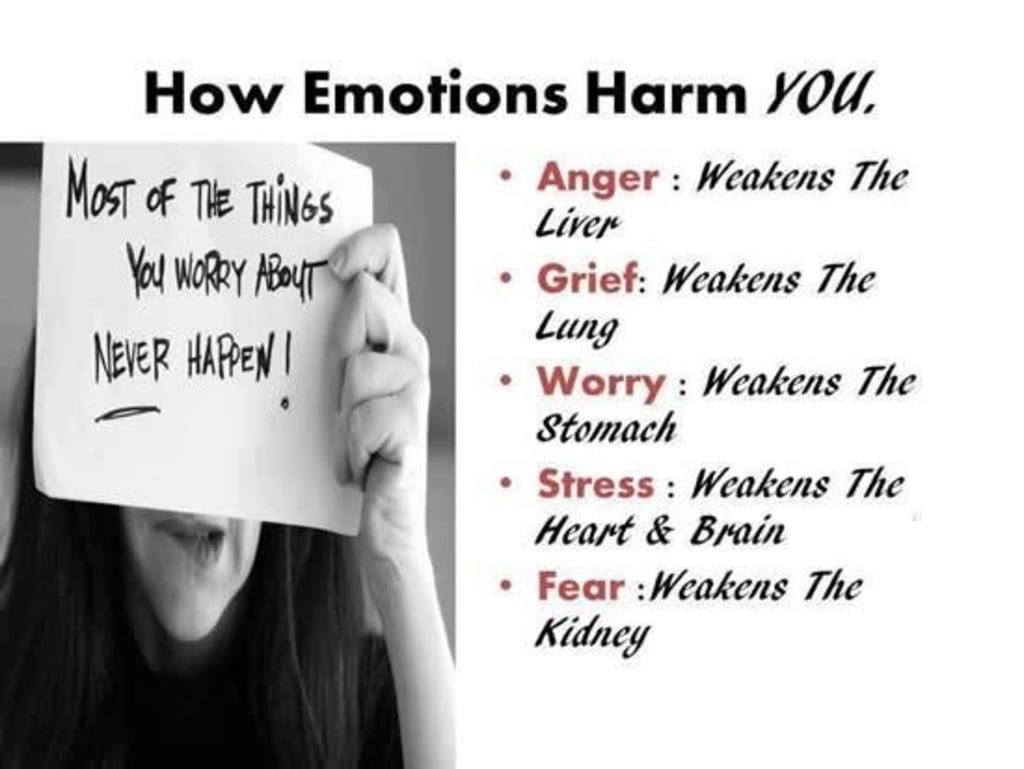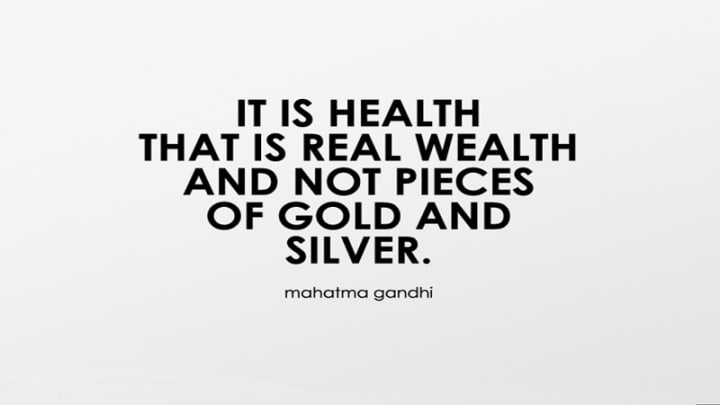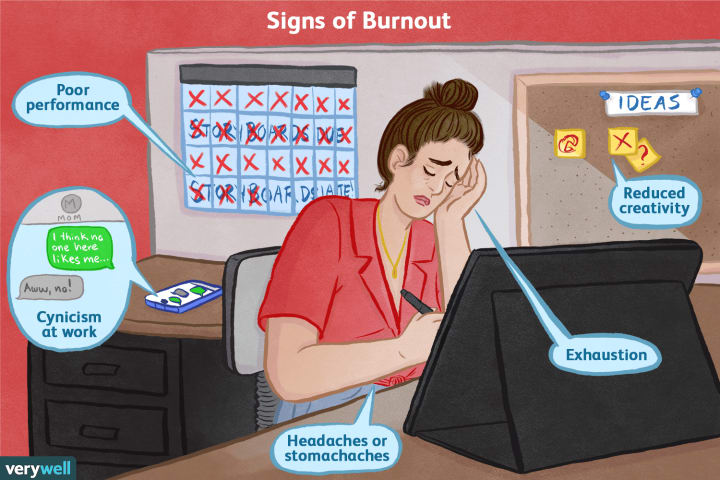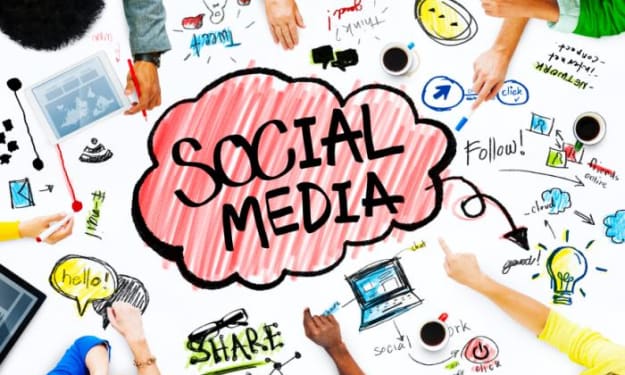20 Major Signs of Poor Mental Health at Any Age to Never Ignore
Learn the signs and cure of having poor mental health!

We’ve all heard of mental health diagnoses like depression, anxiety, and bipolar disorder.
Sometimes, the first signs of mental illness are seen in decreased functioning. This might appear as bad grades, poor work performance, failing to express whats going on internally, and avoiding people for long periods of time.
Everyone’s mental health experience is different from the next person and can change at different times.
Knowing the signs and side effects of poor mental health can be life saving for literally millions of people.
What Is Mental Health?
Mental health refers to our social wellbeing, our emotional and psychological states, the way we feel about ourselves, and how we interact with others. This doesn't automatically mean that someone who is facing a difficult time is experiencing poor mental health or has a mental illness.
What does it mean to have poor mental health?
Poor mental health symptoms often include distinct changes in mood, personality, personal habits, and/or social withdrawal. Mental health issues have been proven to be directly related to excessive stress due to a particular situation, family generational dynamics, peer pressure, or a series of events.

True Signs Of Poor Mental Health Adults, Young Adults, and Adolescents
- Withdrawal from friends and activities.
- Feeling sad or down.
- Confused thinking or reduced ability to concentrate.
- Excessive fears or worries, or extreme feelings of guilt.
- Poor concentration
- Problems sleeping, being easily distracted
- Drinking excessive alcohol
- Irritability and short temper
- Finding it difficult to control your emotions
- Extreme mood changes of highs and lows
- Worrying a lot more and often
- Finding it hard to make decisions
- Feeling less interested in day-to-day activities
- Low mood
- Aggression
- Feeling overwhelmed by mundane things
- Crying easily and feeling down
- Tired, drained and lack of energy
- Sleeping more or less
- Talking less and avoiding social activities
What does having poor mental health lead to?
Poor mental health can lead to other diseases within the body. It will affect your ability to make healthy decisions and less capable of fighting off chronic diseases. Besides that, neglecting your mental health can lead to plenty more serious health complications such as: heart disease, narcolepsy, and high blood pressure.
Is there a medicinal cure for mental health?
There are four sole types of prescriptions for mental health issues including... antidepressants, mood stabilizers, antipsychotics, and tranquilizers. They’re most often taken to help reduce the symptoms of a certain mental health problem.
Studies show that medication paired with psychotherapy is the most effective way to promote recovery. Nonetheless, it’s not known exactly how they work but they're "thought" to affect the dopamine receptors in the brain.
Most medications will have side effects as well as often take some time before it actuallybegins to work. There are other less medicinal avenues that have been explored, such as cognitive behavioral therapy, dialectical behavior therapy, and exposure therapy.
Many people often complain that they feel like zombies when on OTC medications and have tried meditation, and had tremendous success having a huge improvement in their mental illness. Although medication does not outright cure mental illnesses, it can, however, help with the management of symptoms.

Most Common Side-Effects Of OTC Medications
- Feeling sick or vomiting
- Feeling tired or restless
- Poor appetite, tastebuds feeling off
- Abnormal movements of the face or body
- Weight gain or weight loss
- Dry mouth and blurred vision
- Constipation
- Sedation, trouble staying asleep and/or feeling sleepy
- Difficulty concentrating
- Dry mouth and blurred vision
- Constipation
- Lower tolerance to glucose (and increased risk of diabetes)
- Diarrhea or constipation
- Feeling dizzy and having vertigo
- Feeling zombie-like as if you're not in your own body
- Feeling anxious or agitated
- Experiencing hallucinations
How To Take Action Using Self Care To Help Yourself
If you start to notice these signs mentioned above, in yourself you can make a mental note and start to work on it so you become better and able to function effortlessly in any situation.
Becoming conscious of the early signs, allows you to become more aware of your own mental health and notice earlier when things are feeling more difficult.
You’re unlikely to recover from a mental health problem using self care alone—but there are things you can do to help make things easier. These suggestions can benefit everyone in the team.
- Get enough sleep daily. Improves concentration and energy levels. Lack of sleep can increase your risk of developing a mental health problem.
- Eating well gives you more energy, helps you feel calmer, and improves your mood.
- Staying around positive people and avoiding negative energy or toxic people.
- Exercise boosts your mood and wellbeing, which helps prevent and treat some common mental health problems.
- Practicing relaxation techniques such as progressive muscle relaxation can help when you’re feeling stressed.
- Talking to friends, family or other people with similar experiences can help you feel less isolated.
As a natural alternative, there are treatment facilities that offer mindfulness-based cognitive therapy (MBCT) and mindfulness-based stress reduction (MBSR) that are recommended to help treat mild anxiety, mood swings and depression.
In just six to eight short weeks, mindfulness meditation will help if you reverse and minimize negative thoughts, feeling unnecessary body pains, find it hard to relax, feeling stressed, worry a lot, and overwhelmed.
About the Creator
Silena Le Beau
She expresses her gift of writing through each piece. She studied writing in college and has been inspiring people for 20 years. She gives back to the community & enriches them with enlightenment. Philanthropist, Empath and Nature lover.






Comments
There are no comments for this story
Be the first to respond and start the conversation.